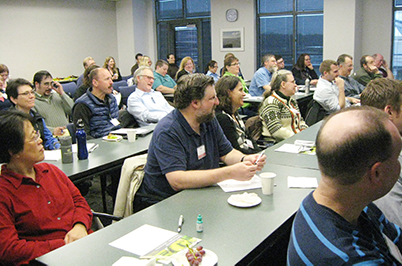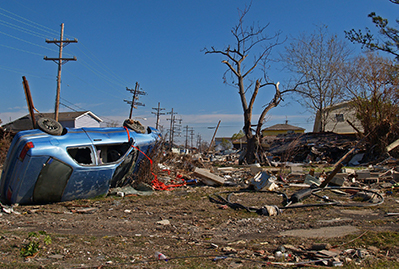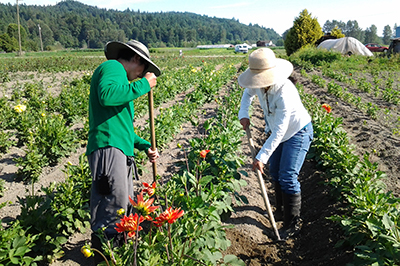CEER research projects apply rigorous research methods to real-world problems identified by public health, emergency management, and community partners. Learn more about CEER's past and ongoing research projects on extreme event resilience.
-sm_0.jpg)
Wildfire Smoke & Health
In 2018, CEER convened a symposium of regional stakeholders to share lessons learned from the 2017 and 2018 wildfire seasons, and to foster academic-practice partnerships to address existing challenges related to wildfire smoke and health in Washington State. Since the symposium, the CEER team has been working with public health practice partners to address the research priorities.
LEARN MORE
Risk Communication
Providing clear and consistent public health information to the public in the context of an emergency is imperative. Our work evaluates the content, appropriateness, and inclusivity of communication plans and campaigns in the context of a variety of hazards and disasters.
LEARN MORE
Building Back Healthier through Disaster Recovery
After a disaster, affected communities work tirelessly to rebuild and recover. The disaster recovery period provides an opportunity to address vulnerabilities before the next disaster strikes by investing in stronger, healthier and more resilient communities. This body of CEER research aims to identify challenges and opportunities related to integrating health promotion into disaster recovery plans and implementation.
LEARN MORE-sm.jpg)
COVID-19 and Pandemic Response
The COVID-19 pandemic has drastically changed our way of life, and put emergency response plans to the test. CEER investigators, students and alumni have conducted research on community impacts and decision making, and provided technical assistance to public health practice partners and community-based organizations.
LEARN MORE
Extreme Heat & Health
Extreme heat is the leading cause of weather-related mortality in the United States, and leads to tens of thousands of ER visits and hospitalizations each year. Heat stress disproportionately affects the elderly, minority groups, occupations working predominantly outdoors, and people living in low-income settings. CEER works with local, state and federal partners, as well as academic institutions from across the country to understand the health effects associated with extreme heat, assess the capacity of public health institutions to respond, and improve public health and community preparedness for extreme heat events.
LEARN MORE